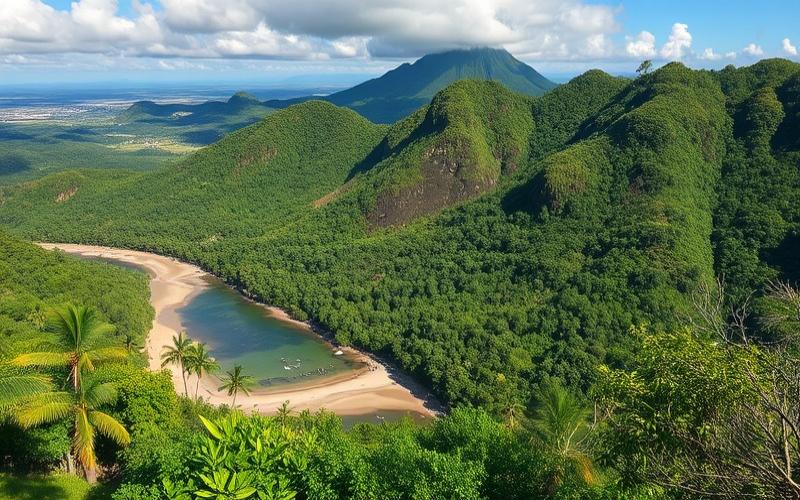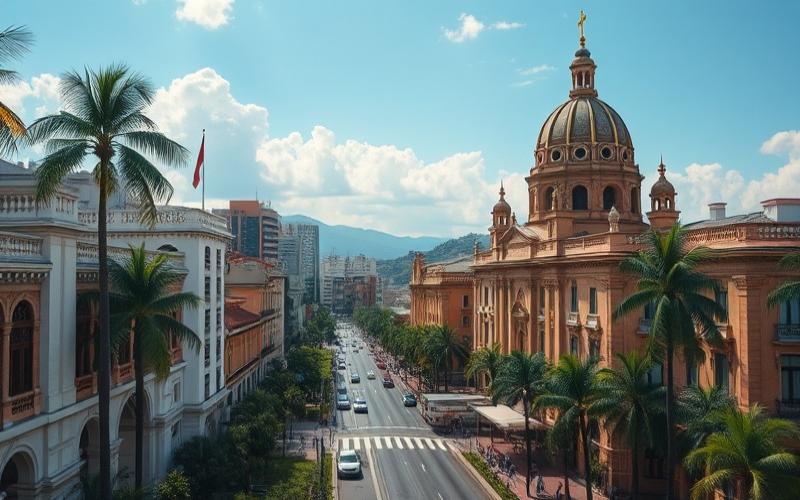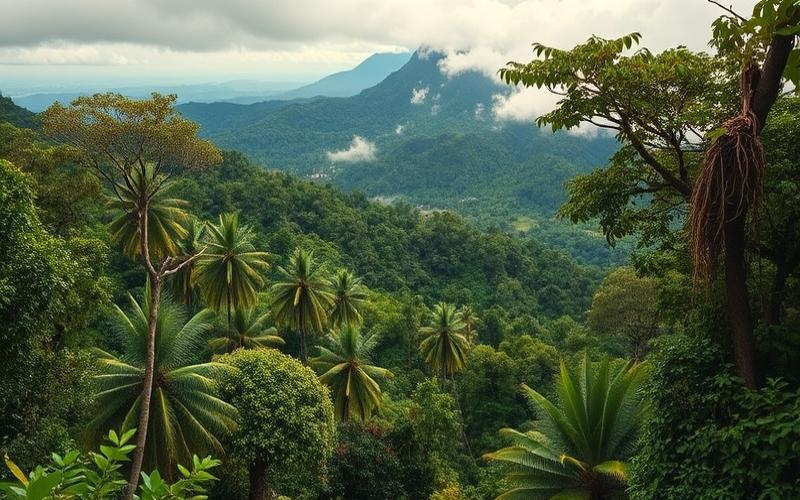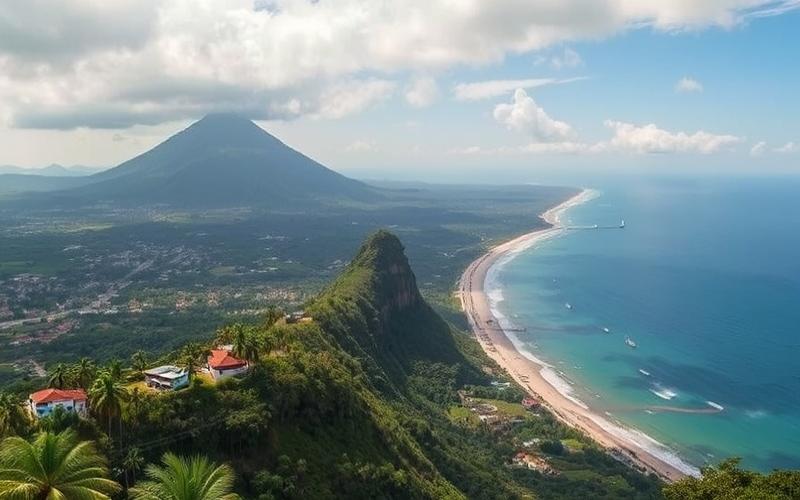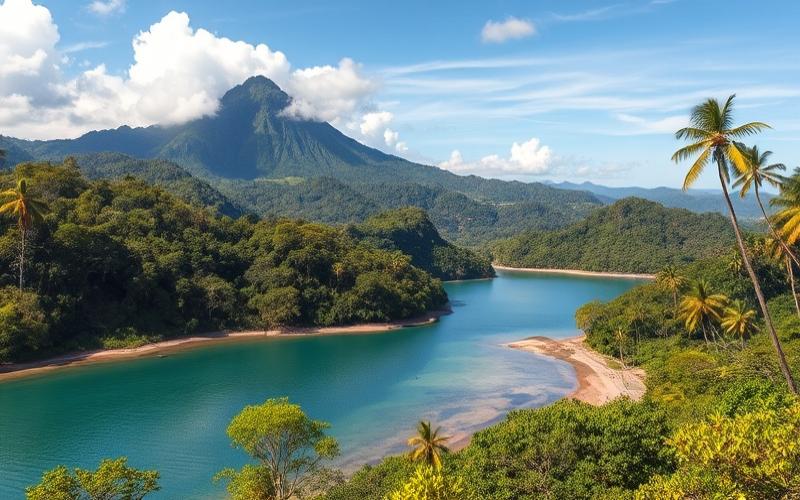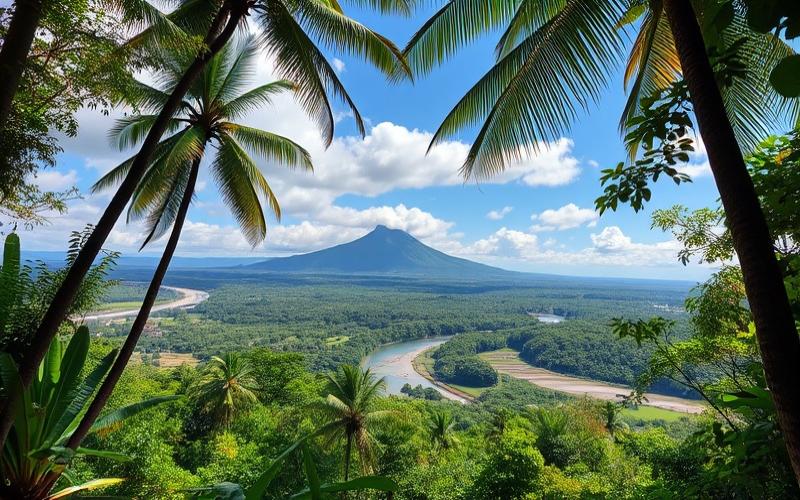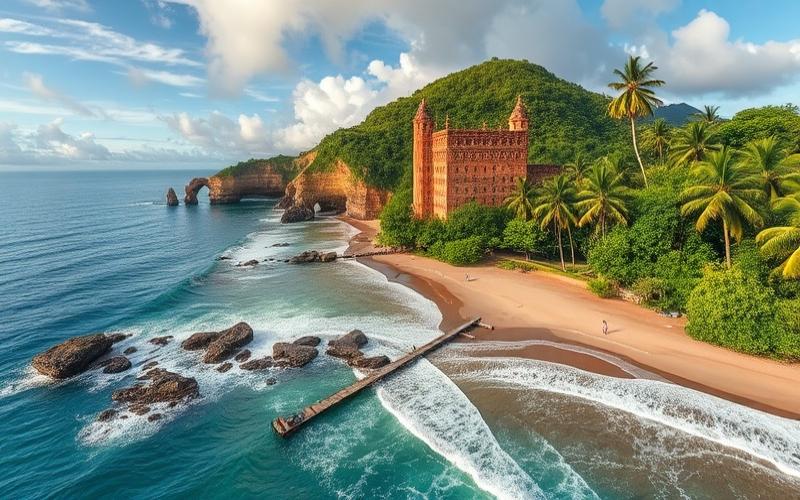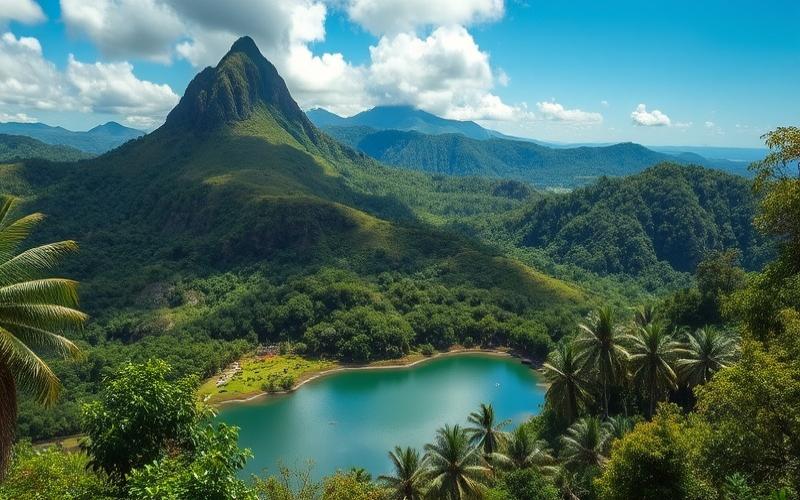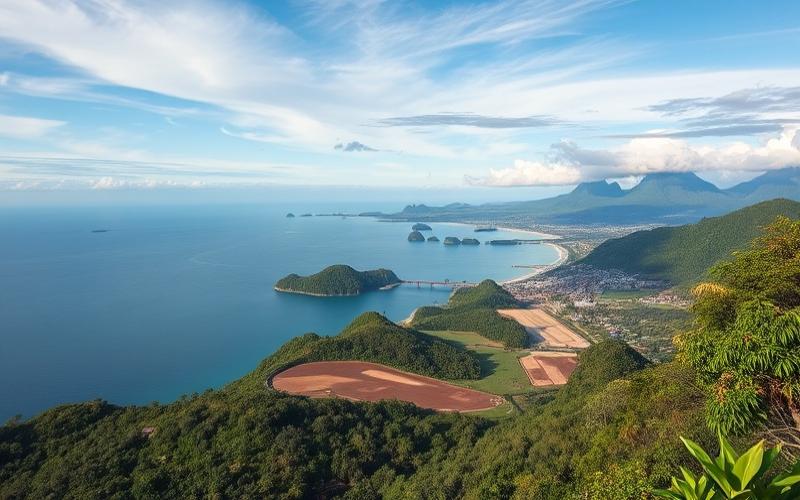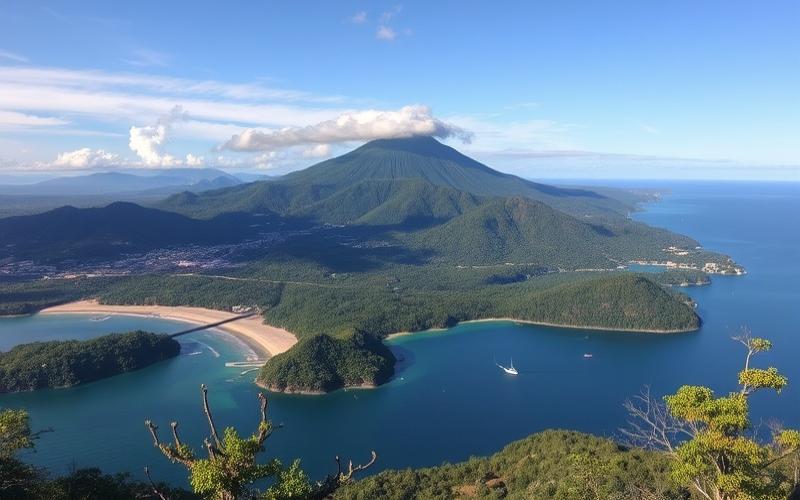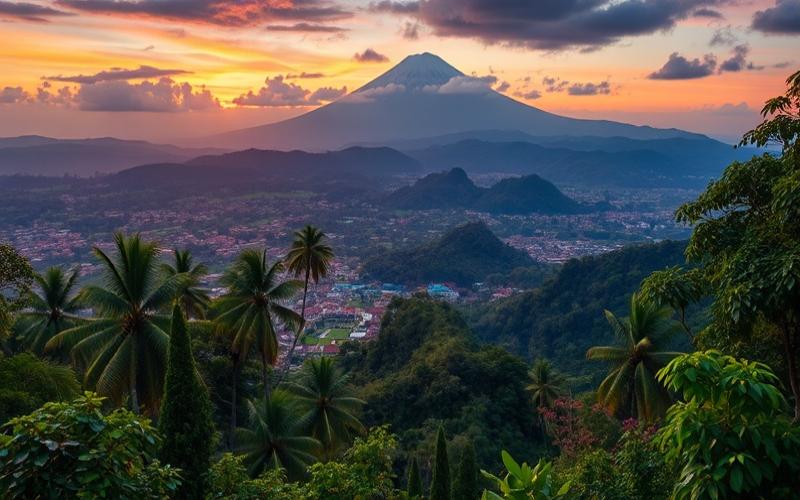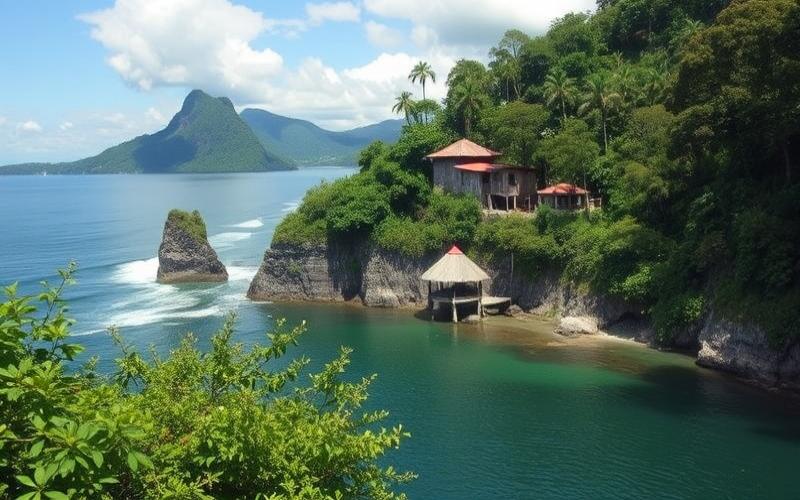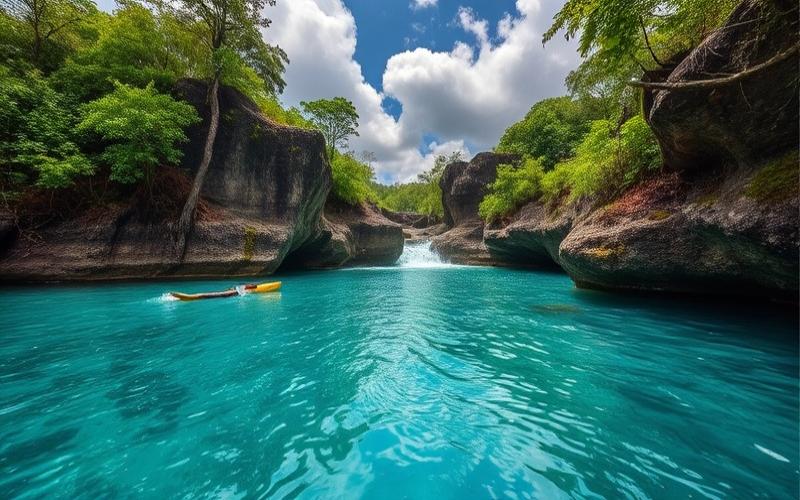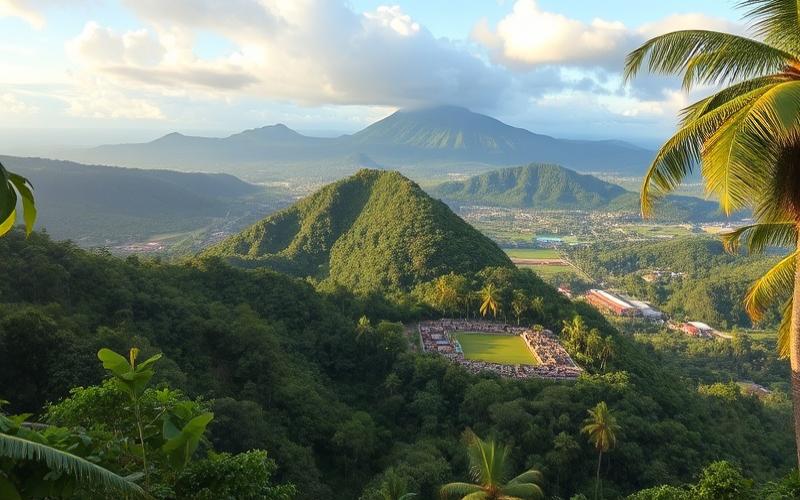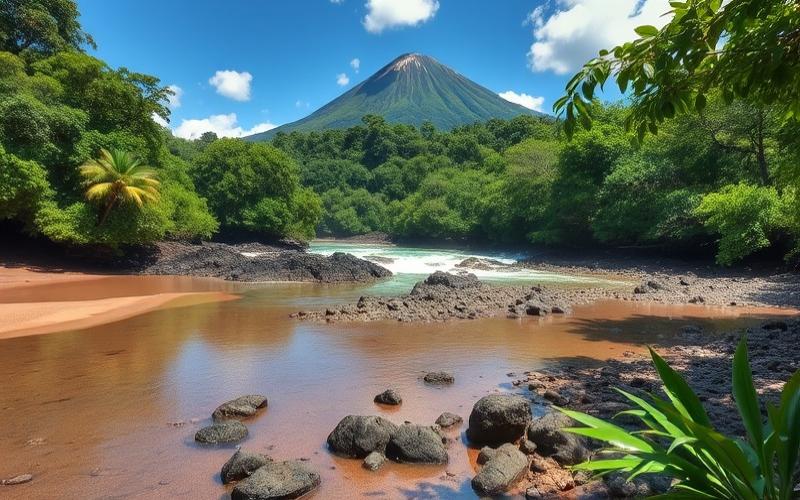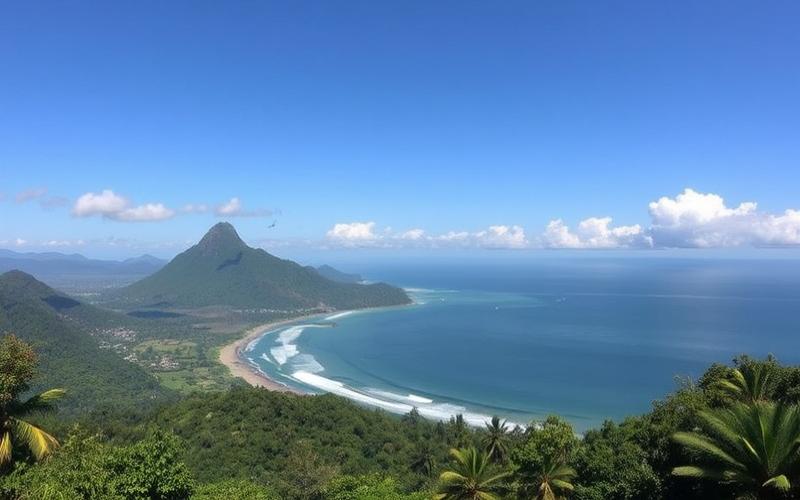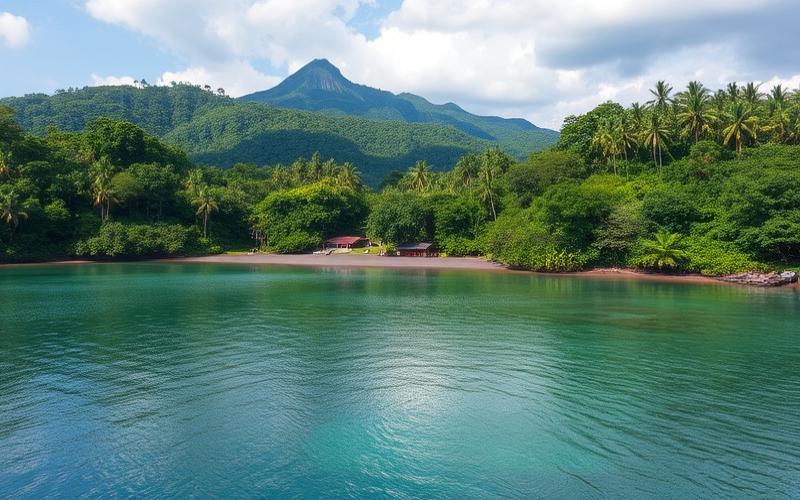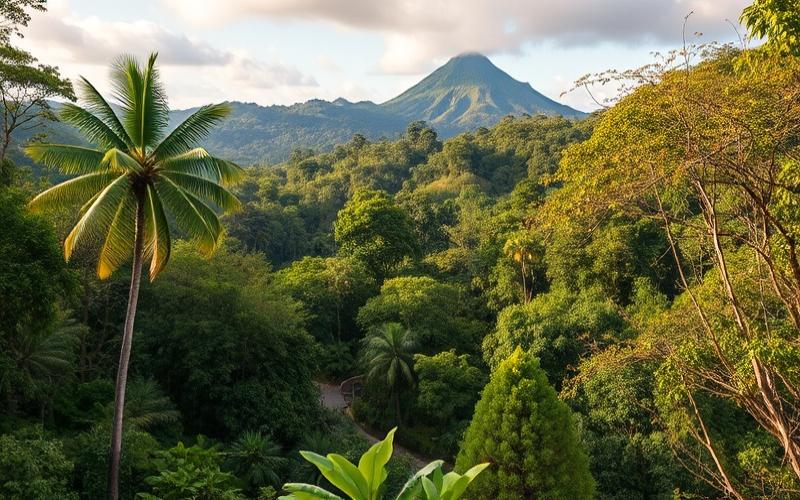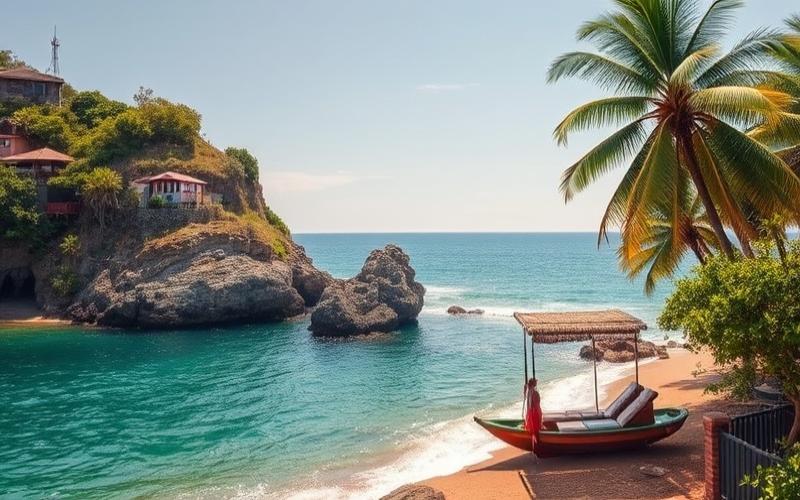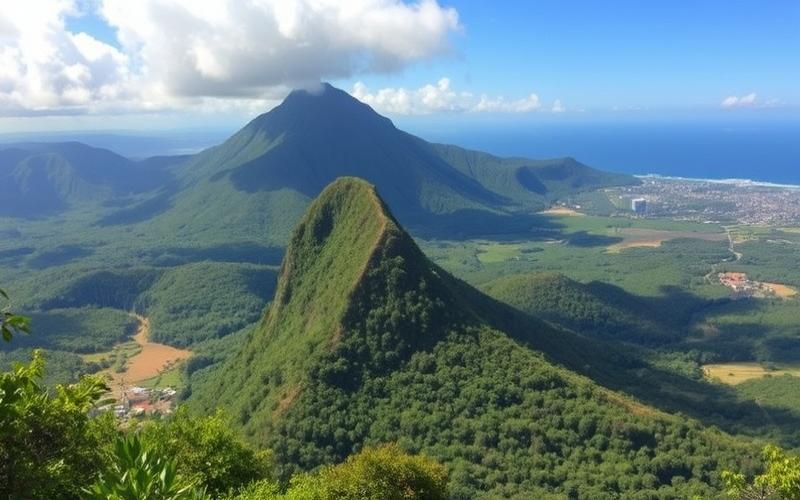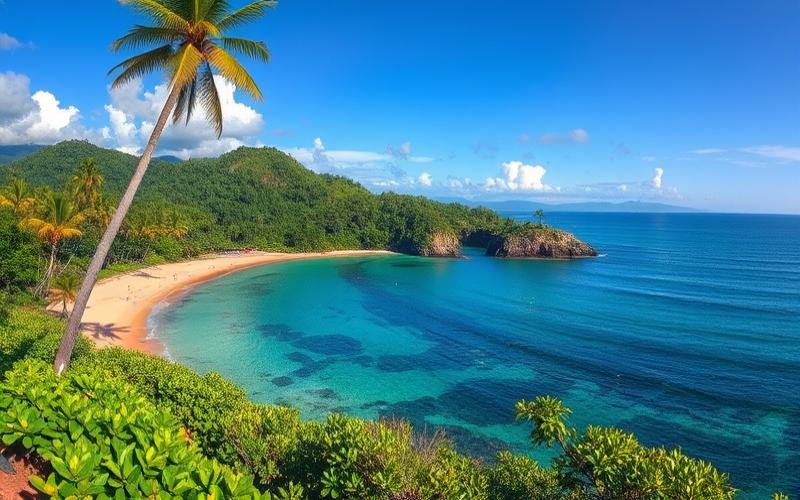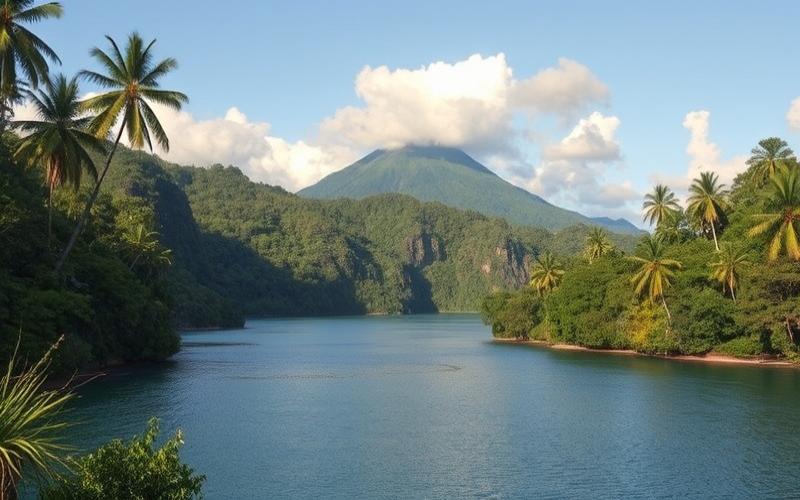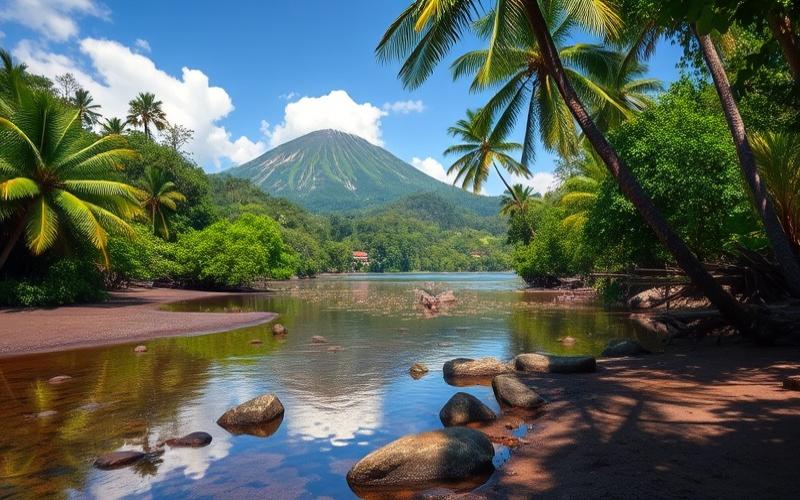
 Published on and written by Cyril Jarnias
Published on and written by Cyril Jarnias
Investing in Costa Rica Through Real Estate Crowdfunding
In the dynamic context of the global real estate market, Costa Rica stands out for its undeniable appeal to investors seeking to capitalize on stunning natural landscapes and stable economic growth.
Crowdfunding: A Revolution for Real Estate Investment
With the rise of new financial technologies, crowdfunding has emerged as a powerful tool, enabling investors from all backgrounds to access the Costa Rican real estate sector without traditional constraints.
Good to Know:
Real estate crowdfunding allows participation in projects with much more accessible investment amounts than traditional approaches.
Opportunities Offered by This Innovative Model
This article explores how this collective investment model is revolutionizing the market by facilitating participation in previously inaccessible projects, while offering unprecedented opportunities to diversify assets.
Discover the mechanisms of crowdfunding and the benefits it offers to leverage the potential of this tropical paradise, beyond conventional and often costly approaches.
Understanding How Real Estate Crowdfunding Works in Costa Rica
Real estate crowdfunding is a form of participatory financing that allows numerous investors, primarily individuals, to fund real estate projects (construction, renovation, or acquisition) through online platforms. This mechanism facilitates access to real estate investment with lower entry costs and offers an attractive alternative to traditional methods in a context where Costa Rica’s market is experiencing sustained tourist and residential growth.
Main Real Estate Crowdfunding Platforms in Costa Rica
| Platform | Main Features | Access Conditions |
|---|---|---|
| Housers (Latin America) | Residential and tourist real estate projects; international access; detailed reporting. | Online registration, min. ticket from $50-100 depending on project |
| SeedInvest CR | Focus on local projects; transparent information on expected returns. | Costa Rican residents or foreigners with KYC documents |
| RealCrowd Latam | More institutional operations (large buildings). | Higher minimum amount (>$1000), thorough verification |
Note: Some international platforms accept Costa Rican residents to invest in local projects.
Typical Steps in the Real Estate Crowdfunding Process
- Project selection by the platform after financial and legal audit
- Public presentation of complete file (objectives, projected timeline, expected return)
- Registration of interested investors via the platform
- Subscription: payment of chosen amount by each investor
- Collection until reaching the set goal (“closing”)
- Project execution with regular monitoring (quarterly or semi-annual reporting)
- Final repayment: return of invested capital + agreed interest
Legal and Regulatory Framework in Costa Rica
- Crowdfunding is not yet defined as a specific financial service but is tolerated in certain forms:
- Donation-based, reward-based, equity-based, or lending-based
- Platforms operating locally must comply with local anti-money laundering laws and general tax obligations.
- Generated earnings are considered investment income subject to taxation under the Costa Rican tax regime applicable to non-residents or residents.
- Current absence of a single authority dedicated to specific sector regulation.
Opportunities & Risks for Investors
Opportunities:
- Easy diversification through access to multiple small tickets across different projects
- Potentially higher returns than the local conventional bond market
- Direct participation in national tourism/real estate dynamism
Risks:
- Main risk related to project delivery failure or commercial failure
- Lower liquidity: generally impossible to sell shares before maturity
- Still unstructured regulatory framework, thus less protective than some European markets
Recent Examples of Crowdfunded Projects
| Project | Type | Amount Raised | Result |
|---|---|---|---|
| Tamarindo Residence | New construction | $600,000 | Delivery completed – target return achieved (~8% annual) |
| Eco Villas Puntarenas | Ecological renovation | $350,000 | Work completed – slight decrease vs initial projection |
Returns vary significantly depending on initial seriousness in selection/operationalization.
Evolution Prospects and Impact on Local Market
- Rapid development of financial technologies suggests significant increase in local offerings structured around a strengthened legal framework.
- Gradual arrival of international players accelerates professionalization.
- For Costa Rican real estate market:
- Expanded access for local developers previously limited by traditional banking channels,
- Potential stabilizing effect by democratizing investment among broader local population,
- But increased need for regulatory vigilance against systemic risks from uncontrolled massive influx.
To Watch
Future legal evolution will play a determining role in securing sustainability for both project leaders and individual investors.
Good to Know:
Real estate crowdfunding in Costa Rica is a form of participatory financing that allows investors to diversify their portfolios by supporting local real estate projects. Among the main available platforms, some offer easy entry with varying minimum investment amounts and propose attractive projects for investors, such as those related to tourism or residential development. The typical process begins with project selection, followed by due diligence, and investment is made online. Legally, investors must comply with local financial regulations, with particular attention to tax implications. Although this investment method can offer potentially high returns, it carries risks such as local market instability. Recent successfully funded projects include the development of residential complexes and eco-friendly hotels, illustrating the potential of this sector in Costa Rica. Real estate crowdfunding shows growth potential, contributing to making the market more accessible while stimulating innovation in the real estate industry.
Benefits of Participatory Real Estate Investment in Costa Rica
Financial Accessibility
Real estate crowdfunding enables investors from all backgrounds to access Costa Rica’s real estate market with much lower initial contributions than traditional purchases. Instead of mobilizing significant capital to acquire an entire property, it’s possible to invest reduced amounts (a few hundred or thousand dollars) in shares of selected projects. This accessibility opens the door to a new generation of investors who want to benefit from the Costa Rican market’s dynamism without exposure to classic financial barriers.
Comparative List: Traditional Purchase vs Crowdfunding
| Criterion | Traditional Purchase | Real Estate Crowdfunding |
|---|---|---|
| Minimum Contribution | Very High | Low |
| Market Access | Limited by Capital | Open to All |
| Easy Diversification | Difficult | Simple |
Diversification
Participatory investment makes diversification accessible: it becomes possible to spread capital across multiple real estate projects simultaneously (housing, commercial, ecotourism). Thus, risks are pooled and the portfolio is better protected against specific hazards of a single project or geographic area.
Example:
– An investor can place $1,000 in five distinct projects (seaside residential, urban commercial, ecological ecovilla…), reducing the potential impact of any individual failure.
Potential Returns
Real estate crowdfunding generally offers higher returns than traditional banking products and is competitive compared to classic rental real estate. Costa Rica is experiencing sustained growth in the real estate sector driven by international demand and attractive tax incentives for foreigners. Expected rates may vary depending on project type (rapid residential development or seasonal rental), but overall benefit from the favorable local economic context.
Key Points:
- Regular annual growth in price per square meter.
- Absence of capital gains tax on real estate for certain profiles.
- Potential returns often announced between 7% and 12% gross per year depending on platforms and project types (to be considered relative to each case).
Access to Varied Projects
Thanks to specialized platforms, it’s possible to invest in a wide variety of real estate projects in Costa Rica:
- High-end or affordable residential developments
- Commercial projects in tourist expansion
- Ecovillas incorporating green technologies
- Eco-friendly accommodations dedicated to ecotourism
This variety meets both speculative expectations and growing ecological or social convictions among many international investors.
Non-Exhaustive List:
- Beachfront villas
- High-end senior residences
- Tourist shopping centers
- Urban student housing
Local Partnerships
Getting involved through crowdfunding fosters direct partnerships with experienced local developers. This facilitates deep understanding of the Costa Rican market while actively participating in regional economic development. Local project leaders benefit more quickly from collected capital to launch their projects; they also benefit from increased financial leverage and enhanced visibility among a broad international community.
Direct Benefits:
- Better knowledge of local regulations through established partners.
- Direct support to Costa Rican entrepreneurial fabric.
- Transparent sharing on operational progress through regular reporting.
Transparency and Control
Specialized platforms now impose a high level of transparency: detailed files before investment, regular monitoring via quarterly/annual reports accessible from personal investor space. Most also offer a summary dashboard allowing real-time:
- Tracking of each payment,
- Precise status of work progress,
- Updated forecasts regarding returns/deadlines,
- Easy access to associated contractual documents/notarial scans.
This permanent control reassures about operational seriousness and potentially allows quick decision-making if needed (withdrawal/reinvestment).
Concrete Example:
A platform offers quarterly construction photos + downloadable financial summary; automatic alerts sent upon any major change detected at partner site located near San José.
Economic & Social Impact
Participatory investment directly contributes to financing:
- New housing adapted to growing local demand,
- Responsible tourist infrastructure generating sustainable jobs,
- Innovative programs like solidarity ecotourism valuing biodiversity & national natural heritage.
Every dollar invested thus not only fuels potential individual returns but also serves sustainable economic development—particularly outside major urban centers—while promoting social inclusion & regional professional skill development.
To Remember:
The current dynamic clearly shows that real estate crowdfunding is increasingly appealing, driven by:
- Costa Rica’s unique political & fiscal stability
- Growing global appetite for premium natural destinations
- Constant emergence of new adapted residential/commercial typologies
Prospects remain promising both economically and environmentally—with particular emphasis on continuous expansion of the ecovillas sector, a strong symbol between attractive potential profitability & deep respect for local/natural values.
Good to Know:
Participatory real estate investment in Costa Rica offers numerous advantages, including financial accessibility, which allows small investors to enter the market with amounts well below those required for traditional purchases, thus promoting greater portfolio diversification. By engaging in different projects, from ecotourism to commercial developments, investors reduce risks and can benefit from the attractive potential returns of this booming sector. Working with local developers not only provides access to varied projects but also supports the local economy by generating jobs and infrastructure. Crowdfunding platforms provide transparency and regular monitoring, ensuring investors have increased control over their investments. Finally, this form of investment contributes to the country’s economic and social development, as evidenced by recent successful projects that have revitalized several regions through sustainable initiatives.
Identifying Reliable Crowdfunding Platforms to Invest in Costa Rica
Selection Criteria for Reliable Crowdfunding Platforms
To identify a reliable crowdfunding platform, several essential criteria should be considered:
- Platform Reputation
Prefer platforms with solid, recognized track records and positive history in funding similar projects. Good reputation is also measured by financial stability and project leader experience. - User Reviews
Consult feedback and evaluations from other investors. Reviews provide concrete insight into general satisfaction, support level, and monitoring seriousness. - Market Duration
The longer a platform has been present, the more opportunity it has had to prove reliability through various economic cycles. - Regulation and Legal Compliance
Verify if the platform is regulated by a national or international financial authority (for example: SUGEF in Costa Rica or AMF in France). Regulation guarantees certain standards are met to protect investors. - Information Transparency
Clear access to key data: expected return rates, applied fees, general conditions, regular reporting on funded project progress.
| Criterion | Why It’s Important |
|---|---|
| Reputation | Reduces fraud risk |
| User Reviews | Direct indicator of seriousness |
| Market Duration | Sign of robustness |
| Regulation | Regulatory protection |
| Transparency | Enables informed decision-making |
Concrete Examples: Recognized Platforms in Costa Rican Real Estate
In the Costa Rican real estate sector accessible to international investors, certain platforms stand out:
- Housers (present in Europe but also funds international projects)
- Advantages: Recognized platform with multilingual interface; access to diverse real estate markets
- Conditions: Low minimum investment (often around $50); centralized management from Europe
- International accessibility through complete digitalization
- Urbanitae
- Advantages: Rigorous project selection; detailed reporting
- Conditions: Generally higher minimum ticket than Housers; sometimes restricted to European residents
- CrowdEstate
- Present in multiple emerging markets including Latin America; often accepts non-residents
- Offers different types of real estate operations (residential/commercial development)
There isn’t yet a major local platform in Costa Rica itself with established reputation like those listed above in Europe or North America. International access therefore occurs rather through these global operators who occasionally list certain Costa Rican projects.
Always verify that each Costa Rican project is officially among those proposed by these platforms—beware of unlicensed intermediaries!
Essential Precautions Before Any Investment
Before any subscription:
- Request independent audit if possible.
- Carefully examine:
- Complete background of project leader/landowner.
- Historical actual (not projected) default/delay rate observed by the platform.
- Any guarantees provided for each operation.
- Legal structure used to hold real estate assets locally (SPV, trust…).
Summary list:
- Thorough verification of proposed project (experienced developer? Previous results?).
- Detailed analysis of submitted financial plan.
- Careful reading of general conditions related to your international/foreign investor status.
- Independent evaluation – when possible – of country-specific risks for Costa Rica: land legal security, local political stability…
To Remember
A wise investor will always prefer:
Well-established international platforms,
Validated & audited projects,
Rigorous post-investment monitoring,
Transparent documentation accessible before any firm commitment.
Good to Know:
To identify a reliable crowdfunding platform for investing in Costa Rican real estate, it’s essential to consider its reputation, duration of operation, and compliance with current regulations. Look for platforms with numerous positive user reviews that have demonstrated stability over the years. A good example is Housers, a well-established platform offering international co-financing opportunities while being transparent about risks and potential returns. Investment conditions are often flexible, but it’s crucial to verify the track record and viability of listed projects. Don’t forget to check if the platform is registered with local regulatory bodies like Costa Rica’s Monetary Authority. Take time to evaluate project-specific risks by reviewing associated documents and performance assessments to make informed decisions.
Disclaimer: The information provided on this website is for informational purposes only and does not constitute financial, legal, or professional advice. We encourage you to consult qualified experts before making any investment, real estate, or expatriation decisions. Although we strive to maintain up-to-date and accurate information, we do not guarantee the completeness, accuracy, or timeliness of the proposed content. As investment and expatriation involve risks, we disclaim any liability for potential losses or damages arising from the use of this site. Your use of this site confirms your acceptance of these terms and your understanding of the associated risks.

